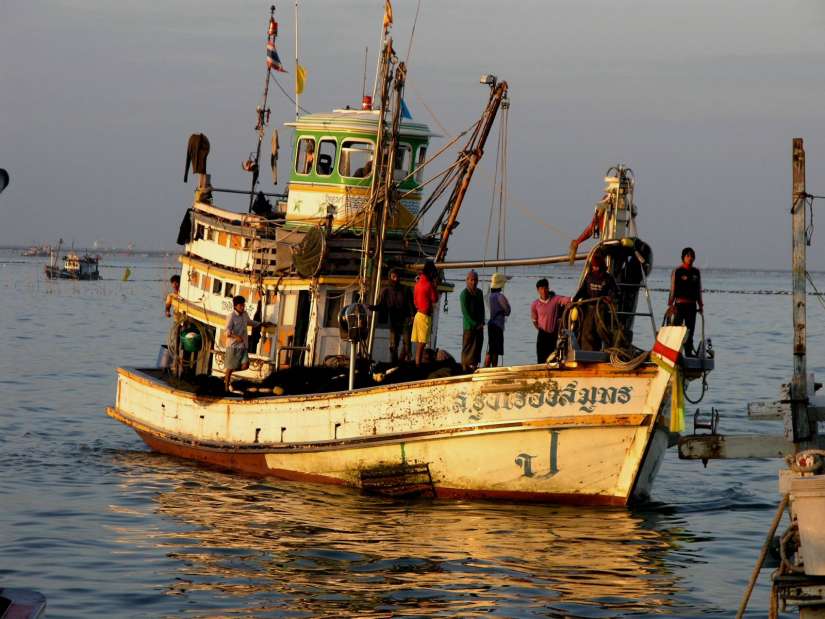The Church's longtime ministry with seafarers puts them in a unique position to be among the first to identify victims of trafficking and provide them needed services no one else may be offering, said Kari Johnstone, acting director of the State Department's Office to Monitor and Combat Trafficking in Persons.
Like most victims of trafficking, "sea slaves" are often tricked or forced into horrendous living and working conditions, she told Catholic News Service.
"They may end up stuck at sea for months or sometimes years at a time where they're not able to leave with horrible abuses happening," including receiving little or no pay at all.
The tangle of nationalities involved with who owns the fishing company or the ship, who contracts the international workers and the no-man's land of international waters makes it very difficult to pinpoint criminal jurisdiction and who is ultimately legally accountable, she said.
It's also hard to know about the problem when boats are trawling hundreds of kilometres out to sea and rarely need to go into port because of "transshipping," she said, which is having "motherships" shuttle supplies from land to the fishing vessels and then ferry the catch back to port, thereby eliminating the need for fishing boats to come to shore and denying crew members the chance to seek immediate help or services.
"And that's why someone can be literally years on the same boat" and never have access to help, she said.
Johnstone was in Rome to meet with Vatican officials and attend an advisory group meeting of the Coalition of Organizations and Ministries Promoting the Abolition of Slavery at Sea or COMPASS, a program run by the U.S. Conference of Catholic Bishops and its Migration and Refugee Services.
Through an agreement with the Department of State, the USCCB is implementing the coalition goals of strengthening the response of the Catholic Church around the world to maritime trafficking, especially in its ministries at sea and in ports. The advisory group is made up of key leaders already working to end human trafficking in the maritime industry and especially the fishing sector.
Religious orders, nonprofit organizations, governmental agencies and the private sector, including the fishing industry, are all part of the coalition, Johnstone said, because the crime of human trafficking is constantly and quickly changing so "we need a chorus of voices and all these different perspectives" in order to locate and act on abuse.
It is estimated at least 20 million people around the world are living and working in slave-like conditions.
Largely unregulated in many countries, the fishing industry is particularly likely to have exploited, trafficked and even kidnapped workers. A demand for cheap seafood, dwindling fish supplies that force vessels to the high seas and legal gaps exacerbate the problem, Johnstone said.
"Missionaries and nuns are often providing a lot of services to victims," she said, and so in many cases "the first person that a victim, for example the victims at sea, come in contact with are the people who are doing pastoral work in the ports."
Religious and pastoral workers are also "helping all of us better understand where the problems are," she said.
Church personnel "have been playing a critical role and I think increasingly doing so" through coalitions like COMPASS that bring different players and expertise to the table, Johnstone said.
Media attention to sea slavery has been very important, she said, and "the Catholic Church clearly and Pope Francis in particular have been phenomenal on this issue," too.
The Pope has used his "moral leadership" and ability to bring vastly different people from all sectors together to "raise awareness and put people on notice that they need to do better" when it comes to fighting and preventing human trafficking, she said.
"The Pope's own voice and priority on this and that, hands down, I think has opened tremendous doors," she said.
The Vatican and the Church "have been great partners on this and I think there are even more fruitful avenues" that are worth pursuing, she added.


